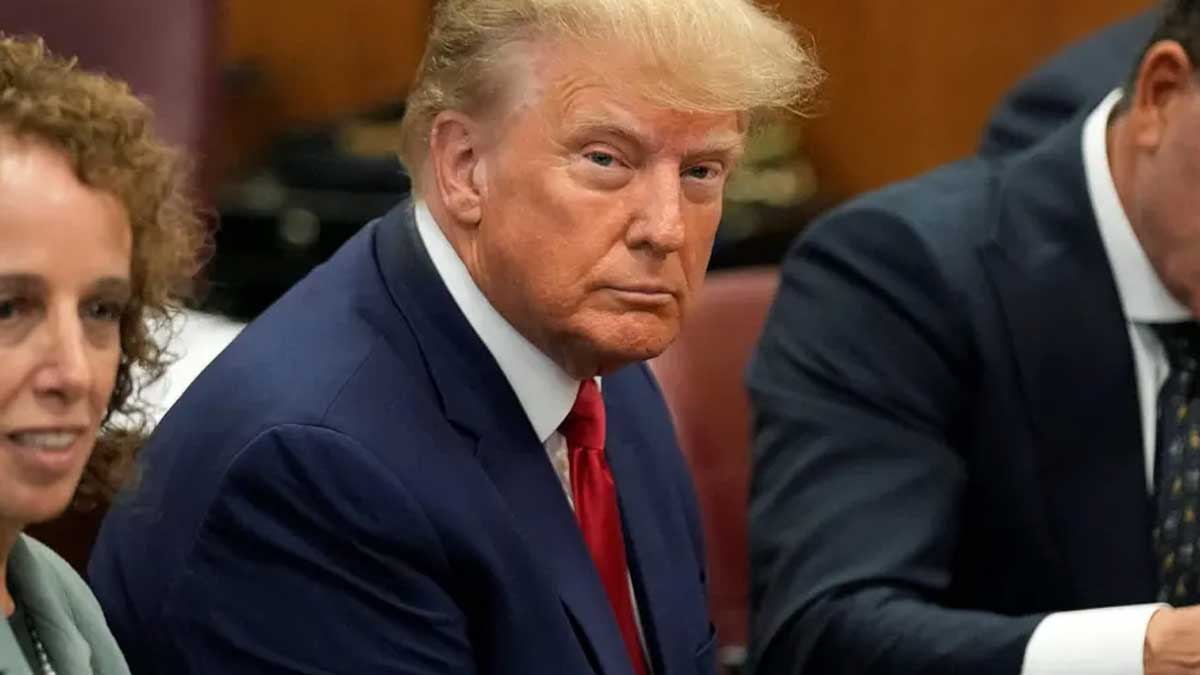- Home
- Billionaires
- Investing Newsletters
- 193CC 1000
- Article Layout 2
- Article Layout 3
- Article Layout 4
- Article Layout 5
- Article Layout 6
- Article Layout 7
- Article Layout 8
- Article Layout 9
- Article Layout 10
- Article Layout 11
- Article Layout 12
- Article Layout 13
- Article Layout 14
- Article Sidebar
- Post Format
- pages
- Archive Layouts
- Post Gallery
- Post Video Background
- Post Review
- Sponsored Post
- Leadership
- Business
- Money
- Small Business
- Innovation
- Shop
Recent Posts
Trump Trial Jurors Paid $40 Daily, Below Minimum Wage

The ongoing trial of former President Donald Trump’s criminal hush money case in New York has shed light on the modest compensation provided to jurors. Lasting four days a week and now entering its fourth week, jurors are guaranteed only $40 per day, a sum set by New York state law. This amount, while sufficient for salaried employees whose employers typically cover their wages during jury duty, falls significantly short for jurors reliant on hourly wages, potentially leading to financial hardship, especially for those near or below the poverty line.
Under New York state law, employers are required to pay at least the $40 jury fee if the juror would have earned less than that amount on the day of service. However, employers are merely “encouraged” to pay for a full day’s wage, leaving many jurors with hourly jobs at a disadvantage. The disparity is more pronounced in New York City, where the minimum wage is $16 per hour, making the daily juror pay equivalent to less than three hours of work.
Should the trial extend beyond 30 days, which experts initially anticipated, jurors’ daily pay would increase to $46. Despite this adjustment, hourly employees would likely still earn less than they would at their regular jobs. Laura Appleman, a law professor, emphasized that the low daily pay can lead to a “major financial crisis” for jurors who rely on hourly wages.
Additionally, there is the prospect of sequestration, a measure that New York Judge Juan Merchan could implement under state law but is considered unlikely. Sequestration would confine jurors to a hotel with limited access to the outside world, including news and communication, akin to being in jail. This move, if enacted, would require the county to cover jurors’ meals and lodging expenses, but jurors would be responsible for their own transit and meal costs otherwise.
The trial, Trump’s first of four criminal trials in the 2024 campaign cycle, stems from charges related to falsifying business records over a hush money payment to Stormy Daniels. Trump has pleaded not guilty, denouncing the case as a “witch hunt” orchestrated by New York prosecutors in collusion with the Biden Administration, a claim made without substantiation. Daniels recently took the witness stand, detailing her alleged affair with Trump in 2006 and explaining that she accepted a $130,000 hush money payment from Trump’s former fixer, Michael Cohen, out of fear of reprisal.
Despite Trump’s vocal opposition to the trial proceedings, Judge Merchan has enforced a gag order, prohibiting Trump from discussing the case publicly. Trump has been fined $10,000 for violating this order multiple times, with the latest violation resulting in an additional $1,000 fine. Further breaches of the gag order could lead to jail time for Trump, an outcome that New York Mayor Eric Adams has stated officials are prepared to pursue at Rikers Island jail.
Recent Posts
Categories
- 193cc Digital Assets2
- 5G1
- Aerospace & Defense44
- AI32
- Arts3
- Banking & Insurance11
- Big Data3
- Billionaires224
- Boats & Planes1
- Business304
- Careers13
- Cars & Bikes66
- CEO Network1
- CFO Network17
- CHRO Network1
- CIO Network1
- Cloud10
- CMO Network18
- Commercial Real Estate7
- Consultant1
- Consumer Tech155
- CxO1
- Cybersecurity51
- Dining1
- Diversity, Equity & Inclusion4
- Education7
- Energy8
- Enterprise Tech29
- Events11
- Fintech1
- Food & Drink2
- Franchises1
- Freelance1
- Future Of Work2
- Games135
- GIG1
- Healthcare74
- Hollywood & Entertainment154
- Houses1
- Innovation37
- Investing2
- Investing Newsletters4
- Leadership65
- Lifestyle10
- Manufacturing1
- Markets20
- Media183
- Mobile phone1
- Money13
- Personal Finance2
- Policy542
- Real Estate1
- Research6
- Retail1
- Retirement1
- Small Business1
- SportsMoney22
- Style & Beauty1
- Success Income1
- Taxes2
- Travel10
- Uncategorized6
- Vices1
- Watches & Jewelry2
- world's billionaires194
Related Articles
Nvidia Surges Ahead of Key Earnings Report
Nvidia Corporation, the global leader in artificial intelligence chip technology, witnessed a...
By 193cc Agency CouncilNovember 20, 2024Trump Denies Selling Trump Media Shares, Calls for Investigation
On Friday, President-elect Donald Trump took to social media to address speculation...
By 193cc Agency CouncilNovember 9, 2024Tesla Hits $1 Trillion as Musk’s Wealth Soars Post-Trump Victory
Tesla’s stock market valuation surged past $1 trillion for the first time...
By 193cc Agency CouncilNovember 9, 2024Trump Win Drives Massive Wealth Gains for Musk and Billionaires
The net worths of some of the world’s wealthiest individuals surged dramatically...
By 193cc Agency CouncilNovember 7, 2024















Leave a comment